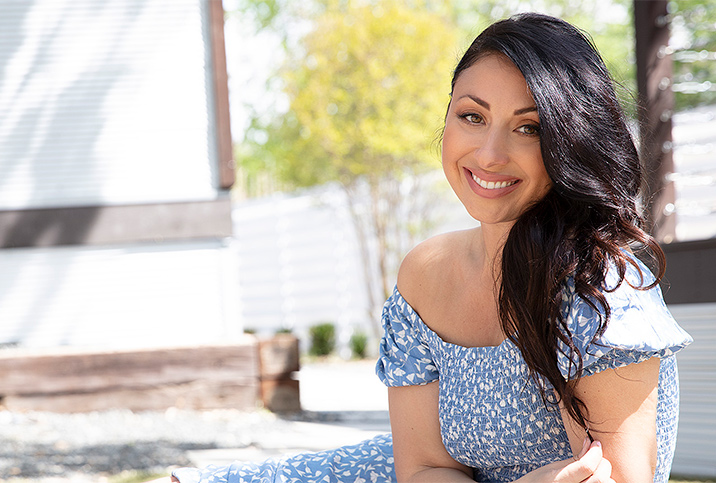So You Beat Ovarian Cancer. Why Don’t You Feel Like Celebrating?

Many survivors have found that life after cancer is just as stressful as fighting the disease. Commonly, women will feel relief after being told they are cancer-free, only to succumb to an unexpected feeling of gloom. They are experiencing Fear of Cancer Recurrence (FCR), defined as: "fear, worry or concern relating to the possibility that cancer will come back or progress."
Waiting for the other shoe to drop
According to a study published in The Lancet Oncology, recurrence anxiety is prevalent among cancer survivors, leading the researchers to conclude that more efforts need to be made to recognize and treat recurrence anxiety in cancer survivors.
There are several reasons FCR happens. For one, cancer survivors know they're never completely out of the woods. Ovarian cancer in particular is scary because it's undetectable; survivors are afraid to let their guards down.
Triggers are usually follow-up exams and check-ups such as ultrasounds. Trauma from diagnosis and first chemo or radiation treatment is re-lived on anniversaries. The support network of healthcare workers is gone.
Finally, there's the reality that things will never be the same as they were before cancer. Many women feel their bodies can no longer be trusted. Everyday events such as back pain, poor appetite or swollen legs will sound alarm bells for the rest of their lives.
Tools to handle fear
What can be a bigger letdown than being denied the joy anticipated in beating cancer?
Fortunately, you can overcome this fear. Psychologists recommend the same methods you used to deal with your diagnosis and treatment: meditation, reality-based therapy, sharing your feelings and being proactive.
Two drug-free methods proven successful in treating recurrence anxiety are mindfulness and cognitive behavioral therapy (CBT). Both are reality-based, meaning they focus on the here-and-now, emphasize personal choices and are nonjudgmental.
Mindfulness is based on Buddhist meditation and is used as a mind-body intervention in coping with the fear of cancer recurrence. By focusing on the breath while "allowing" the present moment, you can ease tensions in the body and clear your mind of apprehensions about the future.
Cognitive behavioral therapy is based on the theory that our thoughts, not external events, create our emotions. So, it isn't cancer that is scaring survivors, it's the catastrophic thoughts about cancer recurrence and how they believe they will respond to it. Even severe reactions such as panic attacks have been proven treatable with CBT.
Talking to family and friends can help. While you were battling cancer, the doctors, nurses and hospital staff were your support network. You could share feelings with them you kept from your family. Now is a good time to transition your support network to your family and friends. Open up to loved ones and let them know what you're going through.
Support groups are also helpful for cancer survivors, in person or online. Connecting with people who know exactly what you're going through can be a huge help. Memorial Sloan Kettering Cancer Center is a good resource for local and virtual programs.
Be proactive about your health
Buddhists teach that fear has a function: it's trying to protect you from danger. But you can listen to it without obeying it. Tell your fear that "you got this." Prepare for doctor's appointments, write down questions you have. Express your concerns.
Taking care of your health is empowering. Especially now that cancer is no longer in the driver's seat. Talk to a dietician about a post-ovarian cancer meal plan. Foods high in vitamin D and vitamin B are proven to lessen anxiety and have anti-inflammatory benefits. Exercise is good for just about everything, with the bonus of helping you build the discipline necessary to conquer your fear.
The irony of FCR is that survivors are afraid of something they know for a fact they can beat. Elizabeth Gilbert, celebrated author of the book "Eat, Pray, Love," mused in an essay that most of what we fear has already happened. She found it comforting. Hopefully, ovarian cancer survivors can find it comforting, too.


















